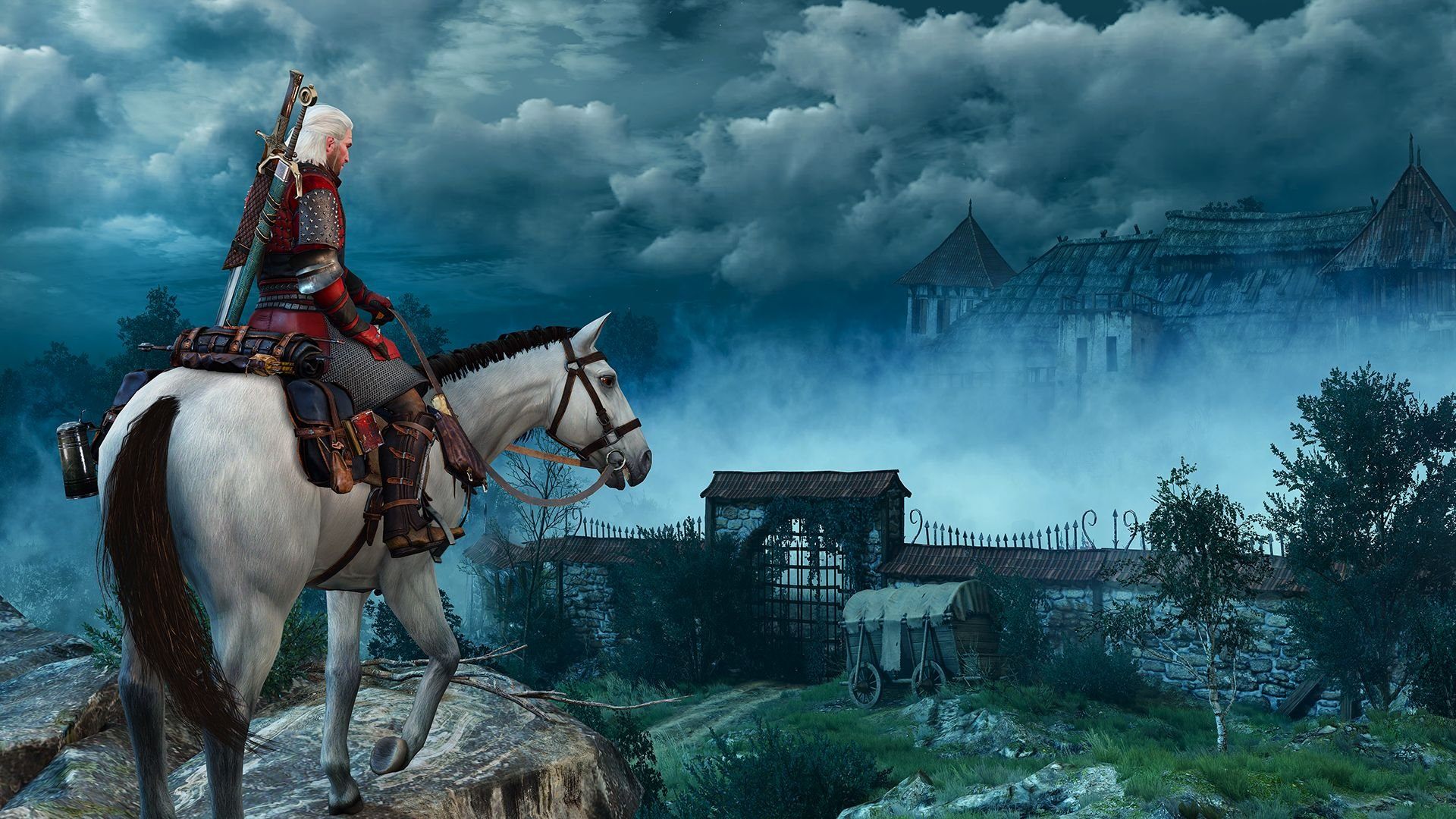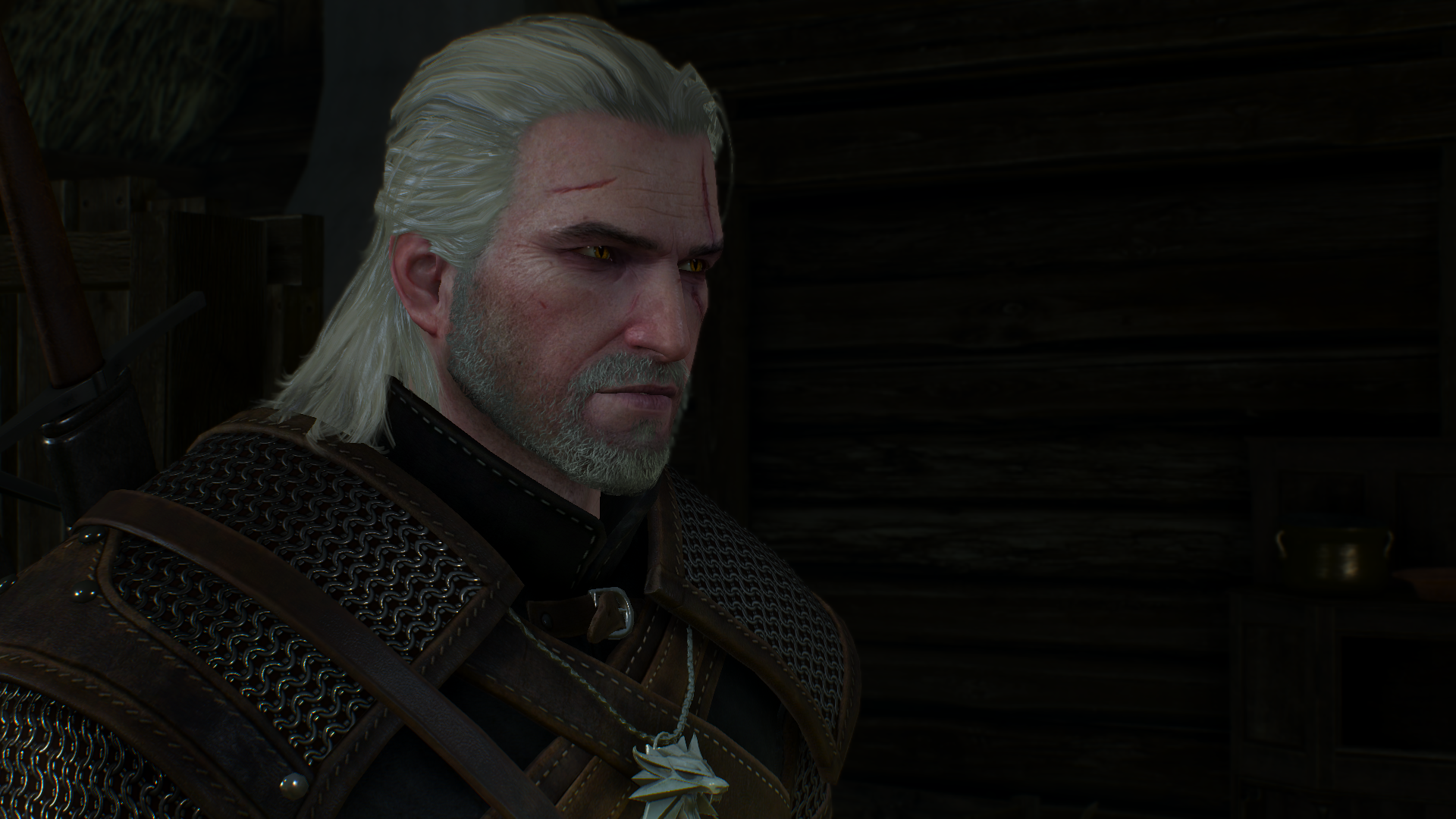A Witcher Series Is Just What Netflix Needs
The Witcher is uniquely suited to a serial TV format, which will hopefully make it a perfect match for Netflix's signature production style.
Right from the beginning, Netflix’s original series have done the impossible. House of Cards normalized high-budget productions from online studios; Daredevil brought big-budget superhero continuity to the small screen; Sense8 proved that a predominantly LGBT cast can sell a sci-fi/action show.
The only thing that eludes the streaming service, it seems, is coming up with its very own fantasy epic.

Perhaps that’s why the company just revealed that it will be producing a series based on The Witcher: a bestselling series of Polish dark fantasy novels by Andrzej Sapkowski. (They’ve also been adapted into some of the best role-playing games of the last decade.) For those who haven’t experienced it in either game or book form, The Witcher is uniquely suited to a serial TV format, with an expansive cast of memorable characters, often pursuing their own independent plotlines.
Fantasy television is a dicey proposition at the best of times; indeed, The Witcher tried and failed at a TV adaptation before. Still, given the source material, it’s easy to see how a Witcher series could succeed — and given Netflix’s sensibilities when it comes to original shows, it’s even easier.
Walking the Path
While it’s both facile and stale to compare every other show on TV to Game of Thrones, it’s hard to deny the Wildling mammoth in the room. Ever since HBO’s adaptation of George R.R. Martin’s beloved novels hit the airwaves, other networks have scrambled to come up with their own dark swordplay-and-political-intrigue counterparts, from Vikings on History to The Shanarra Chronicles on MTV. They’ve had varying degrees of success.
Netflix has already tried to replicate HBO’s winning formula with its historical drama Marco Polo. It didn’t work out well. In addition to being a critical flop, Marco Polo may have lost Netflix as much as $200 million. Rivers of digital ink could be spilled trying to suss out why Marco Polo failed, but the bottom line is that it didn’t connect with an audience the way Game of Thrones did.
The Witcher, on the other hand, is a proven quantity. Fans have been following the adventures of Geralt of Rivia since 1993 on the page and since 2007 on the computer screen. There’s a good reason why The Witcher series is so beloved; it’s simultaneously fun and serious; dramatic and silly; action-packed and pensive. And better still, it has fearsome monsters, powerful sorcerers and brooding swordsmen baked right into the main plot.
Every part of Geralt’s story seems tailor-made for a TV show.
The Witcher franchise follows Geralt of Rivia: a white-haired warrior who crosses swords with threats both supernatural and mundane. Geralt is a Witcher: a professional monster hunter, genetically mutated and trained from childhood to develop preternatural reflexes and combat abilities. Each year, Geralt walks the Path: a meandering journey in which he stops frequently to aid towns beset by monsters — for a reasonable fee, of course.
As Geralt travels, he befriends a number of interesting characters who tend to accompany him for a few weeks at a time before going their separate ways. There’s the charismatic bard Dandelion; the powerful sorceress Triss; the dwarven warrior Zoltan; the young prophet Ciri; and the beguiling enchantress Yennefer, among others.

By some twist of fate, Geralt is always running afoul of powerful people, too. Spies, wizards and even heads of state tend to take an interest in Geralt’s adventures, for better or worse (usually worse). This tends to give the action some gravitas beyond simple monster-hunting, and usually requires Geralt to make some tenuous alliances — at least temporarily — to save himself, his friends and, more often than not, the stability of a region.
Every part of Geralt’s story seems tailor-made for a TV show. Every week, there’s a monster to fight, a supporting character to flesh out, a new place to visit or a political situation to change the stakes. In fact, the first two Witcher books are collections of short stories, which lend themselves to a serial format even better than the later novels.
That wicked witch(er)craft
Still, if Marco Polo taught us anything, it’s that source material alone will not save a show. For The Witcher to succeed, it has to channel the same energy as the books (and games) that preceded it. A Polish production company already tried to adapt The Witcher for TV in a 13-episode miniseries translated as The Hexer. It’s not without its defenders, but it’s also not very good.
Netflix, on the other hand, has already demonstrated that it can pull off the delicate balance between heroic journey, pulpy melodrama and quippy side characters. The Marvel shows (Daredevil, Jessica Jones, Luke Cage and, to a lesser extent, Iron Fist) all strike a similar balance between comedy, drama and fun that the Witcher books aim for. Armed with a competent production team, the series could be primed for success.
Netflix has already demonstrated that it can pull off the delicate balance between heroic journey, pulpy melodrama and quippy side characters.
That production team is already looking pretty good. Sapkowski himself will serve as a creative consultant, and Sean Daniel and Jason Brown from the hit sci-fi series The Expanse will serve as executive producers. Platige Image, a Polish production and visual effects company, will also lend its talents to the Witcher; fitting, since it produced some cinematics for The Witcher 3: The Wild Hunt.
Just as it would be a mistake to declare a show a failure before the first episode airs, it would be equally premature to say that The Witcher is destined for success. And yet, all the proper pieces are in place. It’s a dark fantasy drama with intrigue, action and romance. It has the full support of the original author. It will debut on a service known for taking chances on TV shows previously considered too daring for primetime audiences.
Netflix hasn’t released any details about the show’s release date yet, so until then, fans will have to content themselves with the eight detailed novels and the three massive games.
Sign up to get the BEST of Tom's Guide direct to your inbox.
Get instant access to breaking news, the hottest reviews, great deals and helpful tips.
Marshall Honorof is a senior editor for Tom's Guide, overseeing the site's coverage of gaming hardware and software. He comes from a science writing background, having studied paleomammalogy, biological anthropology, and the history of science and technology. After hours, you can find him practicing taekwondo or doing deep dives on classic sci-fi.

